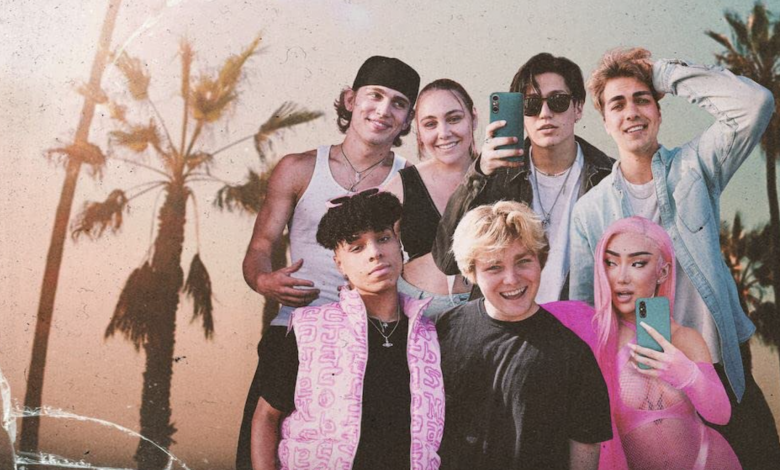Hype House Review

Hannah Loughran ‘25/ Emertainment Monthly Staff Writer
The popularity of Tik Tok in recent years has redefined the power of the internet in the entertainment industry. From viral songs to overnight dance sensations, Tik Tok’s algorithm works overtime to hasten ever-developing trend cycles. Included in this phenomenon of internet fame are the select few young people who take advantage of this viral and quick life change are the many members of the shared account @hypehouse.
Members past and present include Charli D’amelio (the most followed woman on the platform), Chase Hudson, Larri Merritt, founders Thomas Petrou and Alex Warren, and more. The show follows these young social media stars as they struggle to balance internet fame, living in a “content house” that emphasizes collaboration, and being young adults living in Los Angeles trying to kick start their careers. On the surface, Hype House is a fascinating display of how quickly fame and money can disconnect people from reality. Isolated in their small bubble of other content creators, the members of the Hype House are detached from almost every aspect of “normal life” or responsibility outside of the high walls of their Moorpark mansion.
The series displays issues from petty drama between teens to COVID irresponsibilities to inappropriately dealing with social issues in their own way. Oftentimes giving about fifteen minutes maximum to the controversial topics that they attempt to tackle; everyone leaving the conversation unscathed with no plans of changing their behavior in the future. A frequent personality on the show is Nikita Dragun, who’s social media controversies precede her fame or business savvy. Nikita has been involved in countless controversies and “cancellations” over the years, such as several accusations of cultural appropriation and hosting and attending parties during the pandemic. Both of which are lightly grazed over in the show.
Nikita has one conversation with fellow house member Larri Merritt about her behavior and accusations about her “blackfishing” by the Black community that were followers of Larri. The conversation ended with Larri trying to explain how damaging Nikita’s behavior was and her making excuses and taking very little, if any, responsibility.
Following the cancellation conversation, many of these content creators speak about their biggest fear in their industry of being “cancelled.” Many express how they could lose everything if they were caught doing something that the internet viewed as controversial. And while this seems like a valid fear in any public profession, the discrepancy lies in the decisions that these influencers make despite their so-called fear
Hype House emphasises the business relationship between the members of the house, while simultaneously trying to portray their experience as purely self indulgent where all members are best friends. It is this dichotomy that is representative of the show and modern social media culture as a whole.
This certain brand of social media star, or rather employee, is one that lacks genuineness and relatability. It appears to the audience as a business venture– because that is what it is– and shows why this disingenuous breed of influencer is often the most financially stable.
Hype House flaunts people who have everything, still longing for more.